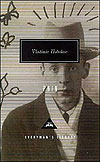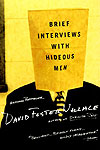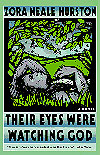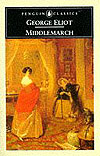
Pnin
By Vladimir Nabokov
This novella is explicitly a book about ridicule and caricature—Professor Pnin is a joke of a man on a college campus. He's an awkward Russian émigré with bad English, false teeth, a clumsy sense of humor, a tendency to burst into tears or take offense at small slights. Everybody on campus can do an impression of him. He's a clown. But at the core of the book is the idea that there is a Pnin who is as real as the people who ridicule him. You are invited to laugh at him, and then you are humbled and shamed by your own laughter. It's a gorgeous, hilarious, humane book that uncovers the reality of a man's life in sly, piecemeal fashion. I think it's my favorite novel.
By Vladimir Nabokov
This novella is explicitly a book about ridicule and caricature—Professor Pnin is a joke of a man on a college campus. He's an awkward Russian émigré with bad English, false teeth, a clumsy sense of humor, a tendency to burst into tears or take offense at small slights. Everybody on campus can do an impression of him. He's a clown. But at the core of the book is the idea that there is a Pnin who is as real as the people who ridicule him. You are invited to laugh at him, and then you are humbled and shamed by your own laughter. It's a gorgeous, hilarious, humane book that uncovers the reality of a man's life in sly, piecemeal fashion. I think it's my favorite novel.

High Windows
By Philip Larkin
All of Larkin delights me, but this is a good book to start with. Larkin didn't have great range, but the area he chose is so important it doesn't matter. His deal is making you understand that death is a total and permanent annihilation. Not the nicest news a poet can give you, but still worth knowing. He likes you to believe that the thought of death prompts nothing else in him but despair. That's not entirely true. Larkin was scared of infinity, but he was also capable of making infinity beautiful. "Rather than words comes the thought of high windows: The sun-comprehending glass, / And beyond it, the deep blue air, that shows / Nothing, and is nowhere, and is endless." And what a genius he was with compound phrases. Sun-comprehending!
Looks easy. Is not easy.
By Philip Larkin
All of Larkin delights me, but this is a good book to start with. Larkin didn't have great range, but the area he chose is so important it doesn't matter. His deal is making you understand that death is a total and permanent annihilation. Not the nicest news a poet can give you, but still worth knowing. He likes you to believe that the thought of death prompts nothing else in him but despair. That's not entirely true. Larkin was scared of infinity, but he was also capable of making infinity beautiful. "Rather than words comes the thought of high windows: The sun-comprehending glass, / And beyond it, the deep blue air, that shows / Nothing, and is nowhere, and is endless." And what a genius he was with compound phrases. Sun-comprehending!
Looks easy. Is not easy.

Brief Interviews with Hideous Men
By David Foster Wallace
Wallace is not for everyone, but he is for me. My blind spot in my own work is "the evil that men do." I think I know a thing or two about the way people love, but I don't know anything about hatred, psychosis, cruelty. Or maybe I don't have the guts to admit that I do. Wallace writes brilliantly about hideous men and hideous women and the hideous culture that produces them. Reading Wallace for the first time was also about the hideous revelation of a talent a lot bigger than mine. You can take it when the competition is dead people—it's harder when they're alive. Wallace's prose has brought me as much envy as it has joy over the years. He makes me more ambitious for myself.
By David Foster Wallace
Wallace is not for everyone, but he is for me. My blind spot in my own work is "the evil that men do." I think I know a thing or two about the way people love, but I don't know anything about hatred, psychosis, cruelty. Or maybe I don't have the guts to admit that I do. Wallace writes brilliantly about hideous men and hideous women and the hideous culture that produces them. Reading Wallace for the first time was also about the hideous revelation of a talent a lot bigger than mine. You can take it when the competition is dead people—it's harder when they're alive. Wallace's prose has brought me as much envy as it has joy over the years. He makes me more ambitious for myself.

Their Eyes Were Watching God
By Zora Neale Hurston
This is a deeply soulful novel that comprehends love and cruelty, and separates the big people from the small of heart, without ever losing sympathy for those unfortunates who don't know how to live properly. Hurston is a lyrical writer, and lyricism is not usually my cup of tea, but there are talents that go beyond genre and taste. Her greatest claim over me is that she never was ashamed of the novel as a form—she believed in the transformative power of storytelling, and she took risks with sentiment that few contemporary writers are prepared to make. This book is a part of my character now—that's how many times I've read it. I don't look to fiction to find heroes, but I have to admit that Janie has meant more to me than any other character. She's singing my song, somehow. And you realize the breadth of Hurston's talent when you find out how many other people feel exactly the same way.
By Zora Neale Hurston
This is a deeply soulful novel that comprehends love and cruelty, and separates the big people from the small of heart, without ever losing sympathy for those unfortunates who don't know how to live properly. Hurston is a lyrical writer, and lyricism is not usually my cup of tea, but there are talents that go beyond genre and taste. Her greatest claim over me is that she never was ashamed of the novel as a form—she believed in the transformative power of storytelling, and she took risks with sentiment that few contemporary writers are prepared to make. This book is a part of my character now—that's how many times I've read it. I don't look to fiction to find heroes, but I have to admit that Janie has meant more to me than any other character. She's singing my song, somehow. And you realize the breadth of Hurston's talent when you find out how many other people feel exactly the same way.

Middlemarch
By George Eliot
A work of genius. But more important—and from a purely selfish point of view—a woman wrote it. That might seem ridiculous to male writers, but a man never has to think twice about the gender of genius. He's got too many examples on his side of the fence. Eliot was the first woman I read who could go toe-to-toe with, say, Tolstoy. I was 15. Since then, I've learned how many grand achievements in the novel have been female, but when I was a teenager, that was news to me.
By George Eliot
A work of genius. But more important—and from a purely selfish point of view—a woman wrote it. That might seem ridiculous to male writers, but a man never has to think twice about the gender of genius. He's got too many examples on his side of the fence. Eliot was the first woman I read who could go toe-to-toe with, say, Tolstoy. I was 15. Since then, I've learned how many grand achievements in the novel have been female, but when I was a teenager, that was news to me.




